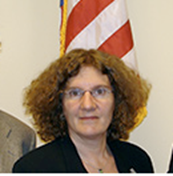
Project Summary:
In Vitro Screening (IVS) Core (F)
The IVS Core will provide to assess the antimicrobial efficacy of compounds provided by Projects 1-5. The Connell laboratory has developed an efficient medium throughput screening system for determining MIC90 values using a 96 well plate assay with appropriate statistical analysis, according to CLSI methodology. Antibiotic resistance will be determined for selected candidate compounds and, as appropriate, compounds will be evaluated using standard assays for potential cytotoxicity, inhibition of metabolic activity, and inhibition of cell proliferation using mammalian cells in culture. In addition to traditional MICs, a number of specialized assays will be available for individual project requirements. The resources and expertise of the IVS Core include macrophage infection model, concentration-dependent killing versus time-dependent killing, small colony variants, serum shift experiments, and drug combination analysis. Compound purity will be confirmed working in conjunction with the Medicinal Chemistry Core (Core D). Data conformity and storage will be handled and shared using the Collaborative Drug Discovery, Inc. software program (see Data Sharing).
The organisms in Connell’s collection include the ESKAPE pathogens, and other human pathogens of concern such as mycobacetrial and clostridial species, and Select Agents designated as potential biological weapons agents. Dr. Barry Kreiswirth’s (PHRI) extensive collection of clinical strains, assembled in collaboration with private, public and VA hospitals in the New York/New Jersey metropolitan area, as well as hospitals throughout the world, will serve in later stages of the projects to define resistance profiles. BSL2, BSL3 and Select Agent BSL3 laboratories are provided for the safe use of this extensive strain collection. The team assembled to carry out these in vitro assays has a combined experience of over 65 years in bacetrial drug discovery and analysis of antibiotic susceptibility and resistance. The group's medium throughput experience with high precision is a significant and essential contribution to the overall project’s success.
Biography:
Nancy D. Connell is Professor in the Division of Infectious Disease in the Department of Medicine at Rutgers New Jersey Medical School (RNJMS) and the Rutgers Biomedical Health Sciences. A Harvard University Ph.D. in Microbiology, Dr. Connell’s major research focus is antibacetrial drug discovery in respiratory pathogens such as M. tuberculosis and B. anthracis. She is Director of the Biosafety Level Three (BSLIII) Facility of RNJMS’s Center for the Study of Emerging and Re-emerging Pathogens and chairs the University’s Institutional Biosafety Committee. Dr. Connell has been continuously funded by the NIH and other agencies since 1993 and serves on numerous NIH study sections and review panels. She has served on a number of committees of the National Academy of Sciences, e.g., the Committee on Advances in Technology and the Prevention of their Application to Next Generation Biowarfare Agents (2004), Trends in Science and Technology Relevant to the Biological Weapons Convention; an International Workshop (2010), and the Committee to Review the Scientific Approaches used in the FBI's Investigation of the 2001 Bacillus anthracis Mailings (2011). Current work is with The National Academies of Sciences “Education Institute on Responsible Science”, held in Jordan (2012), Malaysia (2013) and Trieste (2014).
Dr. Riccardo Russo is the Director of the BSL3 Operations of the Regional Bio-containment Laboratory & Public Health Research Institute, Center for COVID-19 Response and Pandemic Preparedness (CRP2). Dr. Russo obtained his Ph.D. degree from the University of Florida and his MBA degree from the Auburn University. Dr. Russo has also a certificate in Project Management and a Lean Six Sigma Green Belt. Dr. Russo is directing the four in-vitro BSL3 facility and the two animal BSL3 facilities located at the International Center for Public Health.
Since 20013, he has directed the "in vitro Antimicrobial Drug Screening Core Laboratory", part of the Center of Excellence in Translational research (CETR), a collaborative public-private partnership involving senior investigators at Rutgers University and Merck (http://njms.rutgers.edu/research/cetr/) aimed at the development of a new generation of antibiotics against high-threat bacterial agents. Dr. Russo has also directed several other projects in collaboration with research groups from different institutions, major pharma and biotech companies aimed at developing new antimicrobial compounds against ESKAPE bacteria, Mycobacterium tuberculosis, Select Agents and multi-drug resistant bacteria.
From March 2020, Dr. Russo has collaborated with academic research groups from different institutions, biotech, oral products and aerospace companies in developing new therapeutics against SARS-CoV-2 and new technologies for the sterilization of planes and medical devices. Dr. Russo has also directed an operation used to sterilize N-95 respirators used with Covid-19 patients at the University Hospital.
Contact info:
Nancy Connell
973-972-3759
connell@njms.rutgers.edu
Riccardo Russo
973-972-1916
russori@njms.rutgers.edu
Location: Medical Sciences Building, Room A906; ICPH RBL
